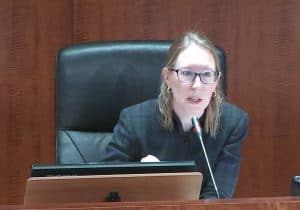Uncategorized
SEC Commissioners Situation Feedback on Proposed Enhancements to Exempt Providing Framework
Yesterday, the Securities and Trade Fee (SEC) proposed important modifications to the exempt providing framework that ought to profit issuers, traders and controlled platforms that facilitate most of these choices. To date, trade response has been overwhelmingly constructive. The proposed amendments will impression Reg CF, Reg D and Reg A+, every of those exemptions is utilized by on-line capital formation platforms.
Following the Fee’s announcement of pending rule modifications, the 4 SEC Commissioners every issued statements on the announcement. Every Commissioner counseled the dedication and arduous work of SEC employees that does a lot of the work, together with Martha Miller from the Workplace of the Advocate for Small Enterprise Capital Formation.
Beneath are some choose feedback posted by every Commissioner.
SEC Chairman Jay Clayton famous that markets are far completely different right this moment than they have been 35 or extra years in the past.
“In the present day’s proposals are centered on small and medium-sized firms. These firms contribute considerably to our financial system however are unlikely to turn out to be public firms attributable to their dimension, the character of their capital wants, or different components. For them, personal choices are a key supply of capital to proceed to develop and create jobs. Nevertheless, they typically do not need the sophistication to successfully navigate advanced rule units. Congress and the Fee have lengthy acknowledged this dependence on our personal markets and have considerably expanded the personal providing framework over a few years. These efforts have created extra avenues for capital formation however haven’t diminished complexity,” stated Clayton. “The amendments would profit issuers and traders by creating an providing framework that’s extra constant, clear and rational.”
 Commissioner Hester Peirce welcomed the subsequent step within the Fee’s efforts to simplify and enhance the exempt providing framework. Peirce stated she was grateful for the suggestions and feedback they obtained:
Commissioner Hester Peirce welcomed the subsequent step within the Fee’s efforts to simplify and enhance the exempt providing framework. Peirce stated she was grateful for the suggestions and feedback they obtained:
“I hope to listen to from commenters not solely concerning the proposed reforms, but in addition about potential extra reforms,” Peirce acknowledged. “I’m happy to help right this moment’s proposal and sit up for continued work on the complementary goals of facilitating capital formation and defending traders.”
Peirce itemized a listing of questions for potential extra reforms.
 Commissioner Elad Roisman stated we should encourage and facilitate the doorway of firms to our capital markets:
Commissioner Elad Roisman stated we should encourage and facilitate the doorway of firms to our capital markets:
“My vote shouldn’t be meant to broaden the personal markets, however to simplify and alter our exempt providing framework with the hope that the proposed modifications will make it simpler for personal firms to transition to public firms. Encouraging and enabling issuers to boost capital in our personal markets earlier could lead to them elevating cash in our public markets at an earlier development stage than we presently see. This, in flip, may enable Primary Road traders to spend money on public firms which have extra development potential,” Roisman stated.
Roisman added that he believes issuers and traders may benefit from a framework that’s extra constant, with fewer gaps and complexities than at the moment exists.
 Commissioner Allison Herren Lee stated that harmonizing the exempt providing framework makes good sense as an idea however expressed her opinion that the proposal goes past harmonization:
Commissioner Allison Herren Lee stated that harmonizing the exempt providing framework makes good sense as an idea however expressed her opinion that the proposal goes past harmonization:
“Extra new capital is raised by means of such choices [Reg D] than another type of providing. Given the scale of this market, it’s tough to see why we have now not made an effort to reinforce our restricted visibility into these choices. Much more troubling, nevertheless, is that we proceed to suggest guidelines to broaden this market, reminiscent of right this moment’s rule and the accredited investor proposal from final December, whereas failing to take easy however important steps associated to Type D filings that may assist us to collect information essential to tell our rulemaking.”
The Commissioner frightened that “we fail in each contexts to adequately tackle a major issue within the decline of the general public markets – the rising availability of more and more unrestricted personal choices.”
The proposed amendments will embrace a remark interval that may stay open for 60 days following publication of the doc on the Federal Register web site.
